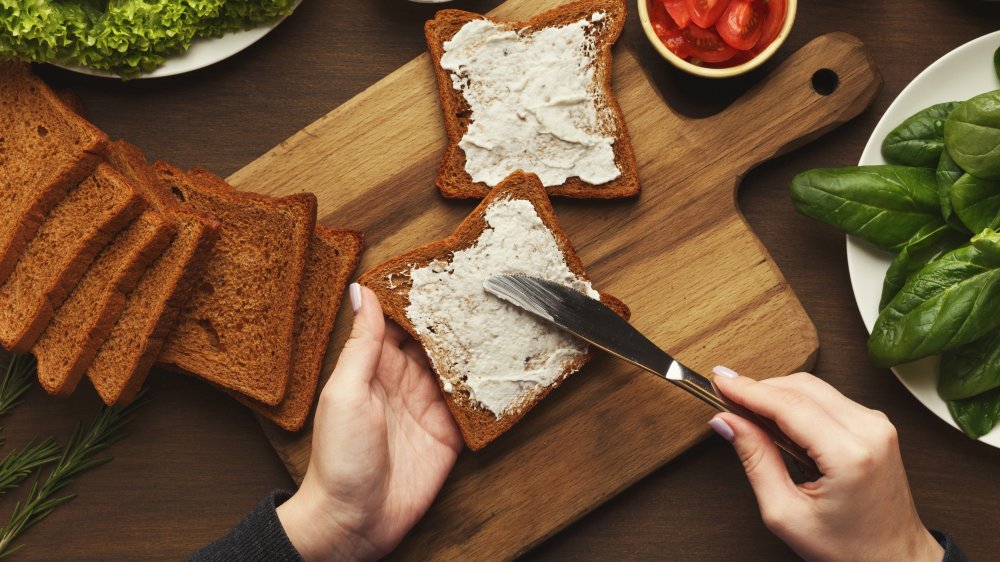How to Preserve Mayonnaise for Barbecue Lovers
Written By James Morgan
Barbecue enthusiasts often have a variety of condiments on hand to enhance their dishes, and mayonnaise is undoubtedly one of the most beloved of them all. If you're among the many who love its creamy richness, you might find yourself asking how to preserve mayonnaise effectively. Whether you're preparing for a summer grill or simply want to extend the shelf life of your favorite spread, understanding the best storage methods is key.
In this article, we will delve deep into the art of preserving mayonnaise. You'll learn about the various types of mayonnaise, the best ways to store it, and tips for maintaining its flavor and texture. Let's get started!

Understanding Mayonnaise
Mayonnaise is a thick, creamy condiment made from oil, egg yolks, and vinegar or lemon juice. Its preparation may vary based on regional preferences or personal recipes; however, its core ingredients largely remain the same. The unique blend of these ingredients creates a delicate emulsion, which is what gives mayonnaise its signature texture.
As a barbecue enthusiast, you may already know that mayonnaise is fantastic not just in sandwiches, but as a base for dressings, dips, and marinades. Recognizing this versatility can be an excellent starting point for learning ways to preserve this delicious condiment.

Types of Mayonnaise
Before diving into the preservation techniques, its essential to note that there are several types of mayonnaise available:
- Commercial Mayonnaise: This version is found in stores and is typically made with preservatives to extend its shelf life.
- Homemade Mayonnaise: Made from scratch, this type usually contains no preservatives and generally has a shorter shelf life.
- Vegan Mayonnaise: A plant-based alternative to traditional mayonnaise with similar usesgood for those with dietary restrictions.
- Flavored Mayonnaise: This includes varieties infused with herbs, spices, or other flavorings to enhance its taste.

Storage Methods for Mayonnaise
Knowing how to store mayonnaise is crucial for its longevity. Here are several methods to preserve this essential BBQ condiment:
1. Refrigeration
The simplest and most effective method of preserving both homemade and store-bought mayonnaise is through refrigeration. Always keep opened mayonnaise in the refrigerator and tightly seal the container to prevent air from getting in, which can lead to spoilage.
2. Freezing Mayonnaise
Did you know that you can freeze mayonnaise? Although this may alter its texture, it is an excellent method for preserving mayonnaise for up to three months. When youre ready to use it, thaw it in the refrigerator overnight and stir to combine.
3. Jarring
For longer-term storage, consider jarring your homemade mayonnaise. Sterilize glass jars and fill them with mayonnaise, leaving a small amount of space at the top before sealing. Store them in the refrigerator and consume them within two weeks for the best quality.
4. Vacuum Sealing
If you have a vacuum sealing machine, consider this method for sealing mayonnaise. Vacuum seal the mayonnaise within a food-safe bag. This method can significantly extend the life of both homemade and commercial mayonnaise by reducing air exposure.

Common Mistakes to Avoid
To ensure that your mayonnaise stays fresh and delicious, avoid these common mistakes:
- Leaving it Out: Never leave mayonnaise at room temperature for extended periodsdoing so can promote bacterial growth.
- Contaminating the Jar: Always use clean utensils when scooping mayonnaise from the container. Avoid double-dipping to prevent introducing bacteria.
- Using Expired Products: Check the expiration date of commercial mayonnaise. Homemade versions, lacking preservatives, should ideally be consumed within a week.
How Long Does Mayonnaise Last?
The longevity of mayonnaise can vary based on its form:
- Store-Bought Mayonnaise: Generally lasts for about 2-3 months after opening when kept in the fridge.
- Homemade Mayonnaise: Best consumed within one week.
- Frozen Mayonnaise: While it can last up to three months, expect changes in texture upon thawing.
Creative Ways to Use Mayonnaise
Mayonnaise is not just for spreading on sandwiches. Here are some fantastic ways to incorporate it into your barbecue meals:
- Barbecue Sauces: Combine mayonnaise with barbecue sauce for a creamy, tangy twist.
- Potato Salad: Use mayonnaise as a base for a delicious potato salad to accompany your grilled meats.
- Marinades: Incorporate mayonnaise into marinade recipes for chicken or fish to keep them moist during grilling.
For tips on what to do with expired mayonnaise, check out this insightful article that provides helpful guidelines. You can also read about healthy substitutes for mayonnaise if you're looking for alternatives.
FAQ
What happens if I eat expired mayonnaise?
While consuming expired mayonnaise may lead to foodborne illness, if it has been stored correctly and shows no signs of spoilage, it may still be safe to consume. Always trust your sensesif it smells or looks questionable, it's best to discard it.
Can I use mayonnaise in baked goods?
Yes! Mayonnaise can be a great substitute for oil or butter in baked goods, providing moisture and richness to cakes and brownies.
Is vegan mayonnaise a healthy option?
Vegan mayonnaise is generally lower in calories and fat, but it is crucial to check ingredients for added sugars or preservatives. Opt for brands that prioritize natural ingredients.
As an Amazon Associate, I earn from qualifying purchases.
For more insightful information, check out the health benefits of mayonnaise on Healthline.



